What is the sleep cycle?
A sleep cycle [1] refers to multiple different stages of sleep.
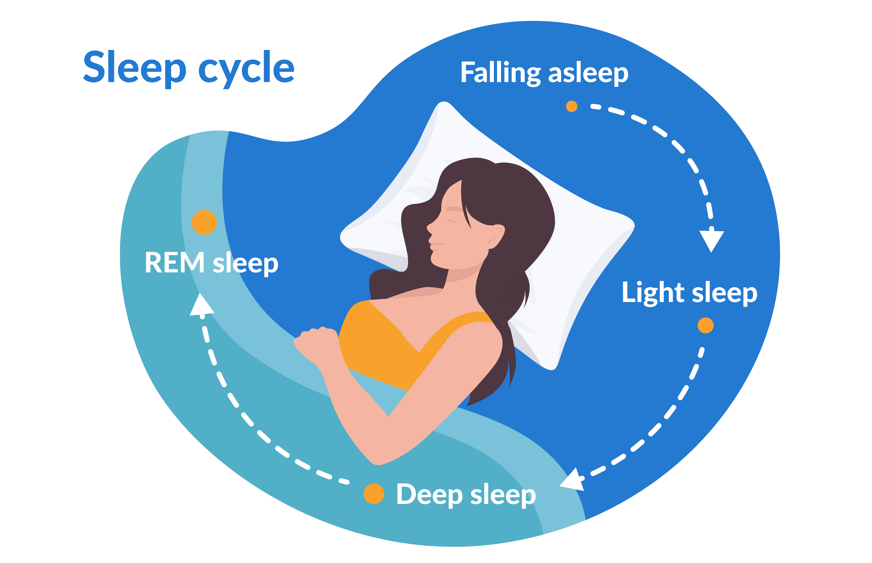
Each cycle includes four main stages [2]:
1. Falling asleep
This stage begins when the lights go off, and you close your eyes. 🥱
During this phase, your heart rate, breathing, and brain activity start to slow.
Key features:
- Typically occurs only in the first sleep cycle.
- In subsequent cycles, the body often skips this stage and moves straight to light sleep.
- It’s closely linked to the circadian rhythm, your "internal body clock”.
After the falling asleep stage, you move on to light sleep.
2. Light sleep
In this stage, eye movement stops, and the muscles begin to relax.
Key features:
- Accounts for around 50% of total sleep during the night.
- Body temperature drops, and it’s easier to wake up during this stage.
Thereafter, you’ll move into deep sleep.
3. Deep sleep
This is the restorative phase, where the body undergoes essential recovery for muscles, the brain, and the immune system.
Key features:
- The body reaches its lowest level of activity.
- Each cycle typically includes 30 minutes of deep sleep.
- Phenomena such as teeth grinding (bruxism) or sleepwalking [3] may occur during this phase.
After deep sleep, you’ll move into the fourth and final stage of the sleep cycle.
4. REM sleep (Rapid Eye Movement)
At this stage, your eyes start darting around, and brain activity spikes as you enter the REM stage, also known as paradoxical sleep. 🧠
This stage marks the end of one cycle and the beginning of a new one.
Key features:
- Dreams occur during this stage.
- Crucial for memory, learning, creativity, and other cognitive functions.
- Some people may experience sleep paralysis at this time.
After approximately 10 minutes in REM sleep, the body briefly awakens or transitions back into light sleep.
The best time to wake up is at the end of a complete sleep cycle. ⏰
These stages repeat throughout the night.
How long is a sleep cycle?
An adult sleep cycle typically lasts between 90 and 110 minutes.
Over the course of a night, you may go through 3 to 6 cycles [4].
Sleep expert Björn Steinbrink explains:
People don’t sleep in hours but in cycles. Ideally, you should aim for 35 sleep cycles of 90 minutes each per week.
Björn Steinbrink
Sleep Coach
However, the duration and structure of sleep can vary depending on the individual, particularly as we age - deep sleep tends to decrease over time.
What affects the sleep cycle?
Various factors, both controllable and uncontrollable, can significantly affect your sleep cycle. 👇
Age
The time spent in each sleep phase changes throughout your lifetime, as do the hours of sleep needed.
- Babies spend a larger proportion of time in REM sleep and may enter this stage almost immediately after falling asleep.
- As children grow, their sleep patterns gradually align with those of adults.
Adults and older individuals often experience shorter REM sleep durations.
Sleep disorders
Conditions like sleep apnoea, insomnia, and restless leg syndrome [5] (RLS) frequently interrupt sleep.
This disrupts the natural progression of sleep stages, leading to poorer sleep quality.
Stress
High stress levels can make it harder to fall asleep and cause fragmented sleep cycles.
This can significantly impact and reduce deep sleep and REM sleep, which are vital for emotional regulation, memory, and learning.
Diet
What you eat can influence your sleep cycle.
Heavy or fatty meals may cause discomfort or indigestion, which disturb sleep, while caffeine and alcohol can interfere with deeper sleep phases [6].
It’s best to opt for lighter, easily digestible foods for a better night's rest.
Physical activity
Regular exercise helps promote consistent and well-regulated sleep cycles. 🏃
But, it’s best to avoid intense workouts close to bedtime as they may be too stimulating.
Instead, try yoga or meditation to relax before bed.
Tips for a healthier sleep cycle
To effectively regulate your sleep cycle, it’s essential to develop healthy sleep habits and create a bedroom environment that encourages rest.
- Stick to consistent sleep schedules: Going to bed and waking up at the same time each day helps regulate your body’s internal clock.
- Be mindful of food and drink: Choose a balanced diet that won’t disrupt your sleep.
- Create the ideal sleep environment: Ensure your bedroom is cool, dark, and quiet, and invest in high-quality sleep essentials like a comfortable bed, mattress, and pillows.
For more tips on improving your sleep quality, check out our sleep advice section.
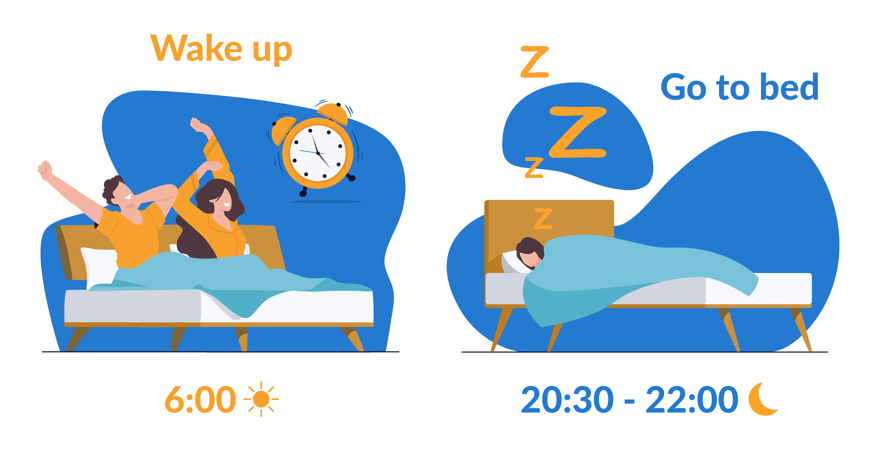
Concluding thoughts on sleep cycles
Understanding your sleep cycle is key to improving sleep quality and overall well-being.
By adopting healthy habits and creating a restful environment, you can enjoy better sleep and wake up feeling refreshed.








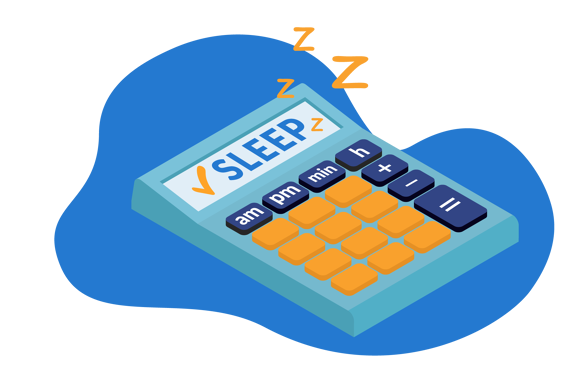
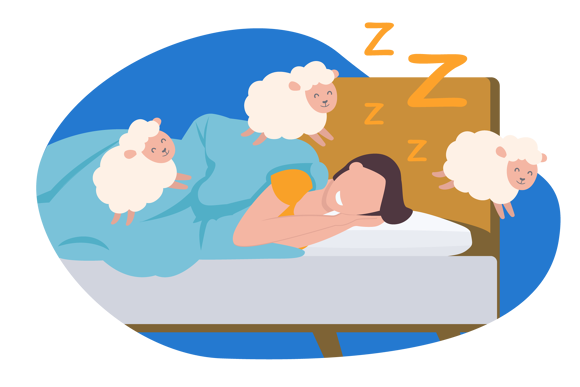
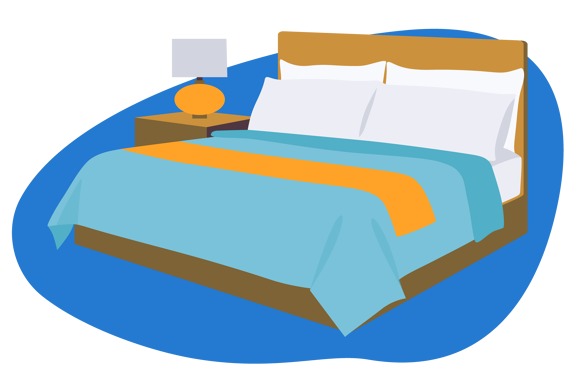


Alternatively, message us directly via the Contact Us page.